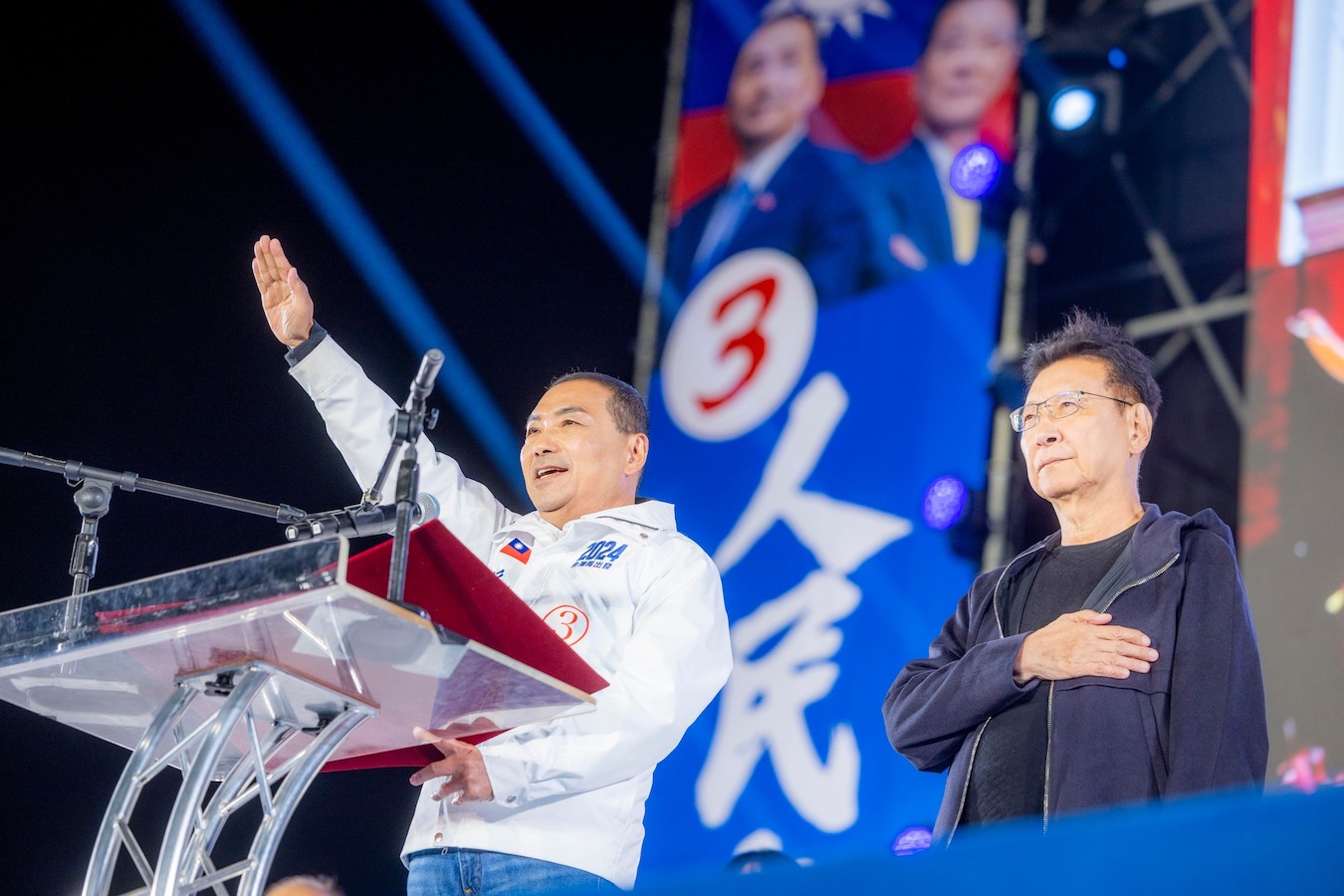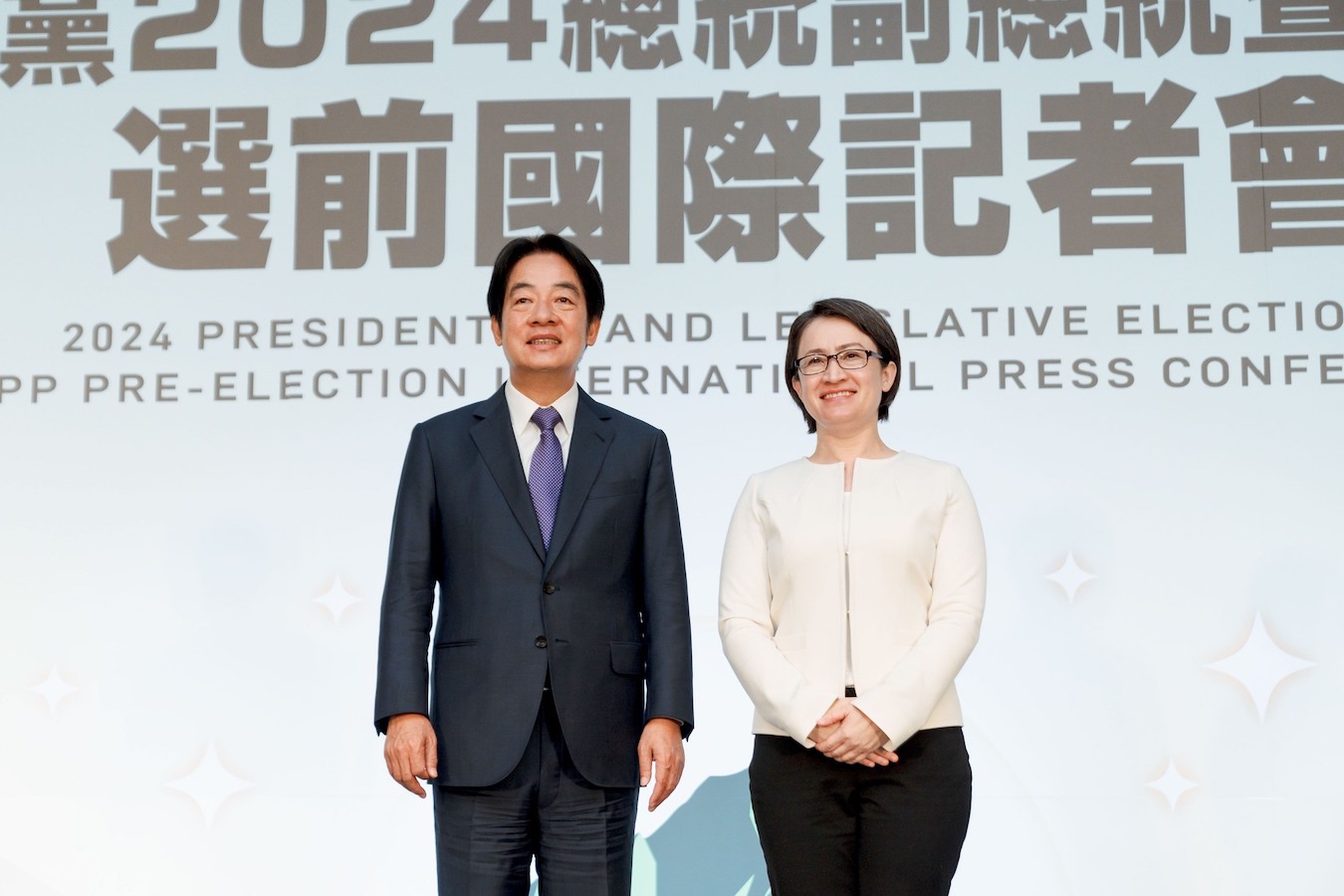by Brian Hioe
語言:
English
Photo Credit: Lai Ching-te/Facebook
KMT PRESIDENTIAL CANDIDATE Hou You-yi has begun to lean into attacks on DPP presidential candidate Lai Ching-te over the death penalty. Hou has called on Lai to clarify what he claims to be an unclear stance on the death penalty.
Indeed, it is not incorrect that Lai has mostly hoped to avoid talking about the issue of capital punishment. Polls overwhelmingly show that the public supports the death penalty, viewing it as a deterrent to violent crime.
During the presidential debate, when Hou confronted Lai on the issue, Lai expressed opposition to capital punishment but stated that social consensus was in favor of the death penalty and so it would remain. Yet, to this extent, it is true that Lai did seek to avoid discussing the issue.
The DPP would be caught between a rock and a hard place–that is, its progressive base and conservative base. The DPP would alienate progressive supporters if Lai expressed support for the death penalty, but this is a minority view in Taiwan, and the DPP does not want to alienate those who support the death penalty either.
 Hou You-yi (left) and his running mate Jaw Shaw-kong (right). Photo credit: Hou You-yi/Facebook
Hou You-yi (left) and his running mate Jaw Shaw-kong (right). Photo credit: Hou You-yi/Facebook
At the same time, the DPP has come to be seen as more hesitant on the issue of the death penalty, and Lai would be seen as perhaps lying if he suddenly made a U-turn to support the death penalty. That DPP candidates face quandaries regarding their stance on the death penalty and sometimes seek to sidestep the issue is publicly well known and is even a plot point in an episode of Wave Makers, the hit television show from earlier this year dramatizing Taiwanese politics which set off a wave of #MeToo cases in Taiwan through its depiction of sexual harassment and assault in politics.
The KMT has sought to attack the DPP over the issue of capital punishment, suggesting that violent crimes are on the rise because the DPP does not use the death penalty. The KMT draws on incidents involving spontaneous acts of violent crime, particularly as connected by young people, to suggest that this is linked to the DPP’s failures of governance in failing to use the death penalty. The relatively few executions that have taken place under the Tsai administration are framed as a de facto moratorium on capital punishment, even as the DPP seeks to defend itself with that capital punishment is still technically on the books.
The KMT has leaned into this narrative of the Tsai administration failing to maintain social order increasingly as the election cycle has gone on. In part, this is playing to Hou’s strengths as a politician. After all, Hou was a high-ranking and publicly prominent police officer before becoming a KMT politician, and it is easy for Hou to frame himself as the law and order candidate.
As such, Hou has played up claims that issues regarding violent crime are getting worse in Taiwan as part of his campaigning, so as to further lean into his reputation as a former police officer. For critics, however, this will further tar Hou’s image as a moderate, given that as a police officer, Hou was already involved in actions such as the series of events that led to journalist Nylon Deng’s self-immolation. Hou’s advocacy for the death penalty may contribute to the view of him as an authoritarian no different than the hardliners within the KMT.
 Lai Ching-te (left) and his running mate Hsiao Bikhim (right). Photo credit: Lai Ching-te/Facebook
Lai Ching-te (left) and his running mate Hsiao Bikhim (right). Photo credit: Lai Ching-te/Facebook
The Tsai administration has, on the other hand, actually faced criticism from anti-capital punishment advocates for using the death penalty to shore up support. Executions carried out by the Tsai administration in the past were accused of being politically motivated, as taking before elections, and involving the executions of individuals with similar profiles to those that had recently committed violent crimes. As such, it is in fact ironic when the Tsai administration comes under fire from the KMT over capital punishment.
The discussion of capital punishment in Taiwan has remained relatively insulated from international discourse that calls for its abolition on human rights grounds. Indeed, TPP presidential candidate Ko Wen-je even claimed during the presidential debate that capital punishment was an intrinsic part of the Chinese political culture that exists in Taiwan, similar to how gun ownership and individualism are deeply enshrined in American political culture, such that it results in an unwillingness to crack down on guns in spite of mass shooting and Americans being unwilling to wear masks to prevent the spread of COVID-19. Such statements may go to show the long path to be walked for the abolition of the death penalty in Taiwan.

